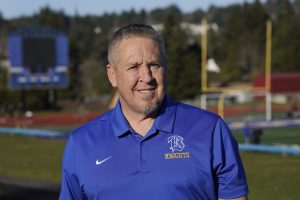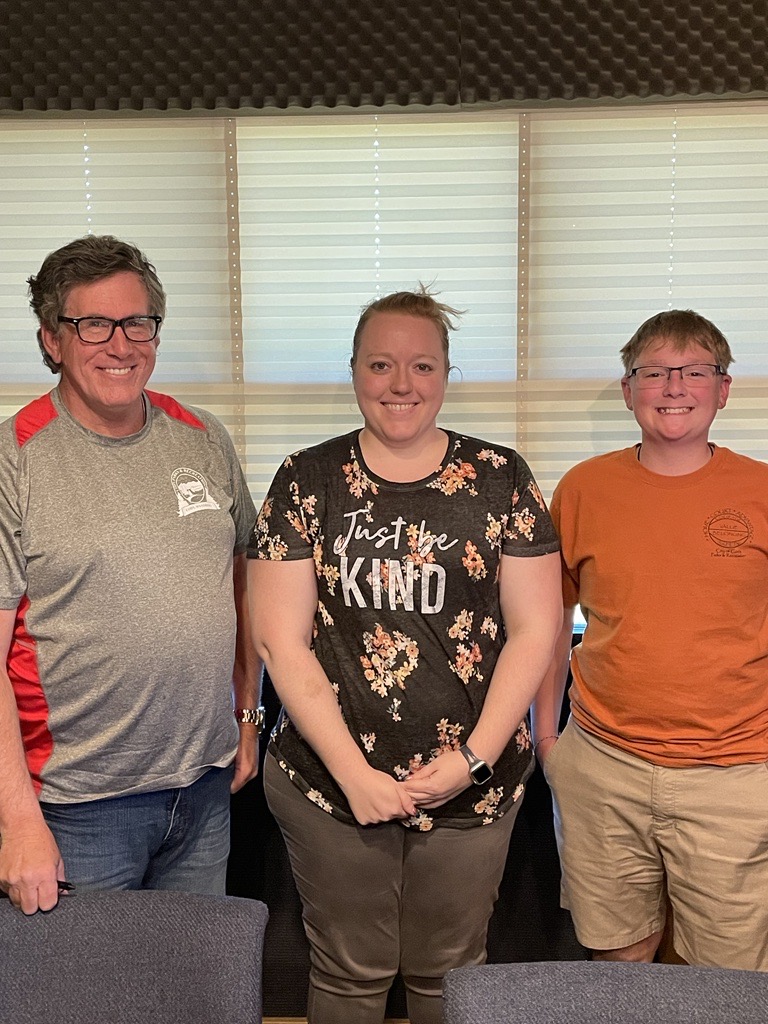Supreme Court sides with coach who sought to pray after game
Written by Associated Press on June 27, 2022
WASHINGTON (AP) — The Supreme Court sided Monday with a high school football coach from Washington state who sought to kneel and pray on the field after games, a decision that could strengthen the acceptability of some religious practices in other public school settings.

FILE – Joe Kennedy, a former assistant football coach at Bremerton High School in Bremerton, Wash., poses for a photo March 9, 2022, at the school’s football field. The Supreme Court has sided with a football coach from Washington state who sought to kneel and pray on the field after games. The court ruled 6-3 along ideological lines for the coach. The justices said Monday the coach’s prayer was protected by the First Amendment. (AP Photo/Ted S. Warren, File)
The court ruled 6-3 for the coach with the court’s conservative justices in the majority and its liberals in dissent. The justices said the coach’s prayer was protected by the First Amendment.
“The Constitution and the best of our traditions counsel mutual respect and tolerance, not censorship and suppression, for religious and nonreligious views alike,” Justice Neil Gorsuch wrote for the majority.
The case forced the justices to wrestle with how to balance the religious and free speech rights of teachers and coaches with the rights of students not to feel pressured into participating in religious practices.
The decision is the latest in a line of Supreme Court rulings for religious plaintiffs. In another recent example, the court ruled this month that Maine can’t exclude religious schools from a program that offers tuition aid for private education, a decision that could ease religious organizations’ access to taxpayer money.
In a dissent Monday, Justice Sonia Sotomayor wrote that the coach decision “sets us further down a perilous path in forcing states to entangle themselves with religion.” She was joined in her dissent by Justice Stephen Breyer and Justice Elena Kagan.
The coach and his attorneys at First Liberty Institute, a Christian legal group, were among those cheering the decision. Paul Clement, the attorney who argued the case on behalf of coach Joseph Kennedy, said in a statement that the decision would allow the coach “to finally return to the place he belongs – coaching football and quietly praying by himself after the game.”
Kennedy himself said in a statement: “This is just so awesome. All I’ve ever wanted was to be back on the field with my guys. I thank God for answering our prayers and sustaining my family through this long battle.”
Kennedy, a Christian, is a former football coach at Bremerton High School in Bremerton, Washington. He started coaching at the school in 2008 and initially prayed alone on the 50-yard line at the end of games. Students started joining him, and over time he began to deliver a short, inspirational talk with religious references. Kennedy did that for years and also led students in locker room prayers. The school district learned what he was doing in 2015 and asked him to stop.
Kennedy stopped leading students in prayer in the locker room and on the field but wanted to continue praying on the field himself, with students free to join if they wished. Concerned about being sued for violating students’ religious freedom rights, the school asked him to stop his practice of kneeling and praying while still “on duty” as a coach after the game. When he continued to kneel and pray on the field, the school put him on paid leave.
In a statement, the Bremerton School District and their attorneys at Americans United for the Separation of Church and State, said the decision undermines that separation required by the Constitution. The school district said that it had “followed the law and acted to protect the religious freedom of all students and their families” and that it would work with its attorneys to make sure the district “remains a welcoming, inclusive environment for all students, their families and our staff.”
Three justices on the court — Breyer, Kagan and Justice Samuel Alito — attended public high schools, while the rest attended Catholic schools.
The case is Kennedy v. Bremerton School District, 21-418.

